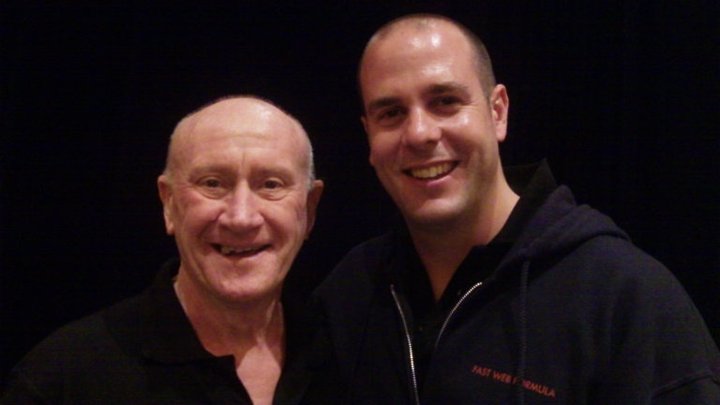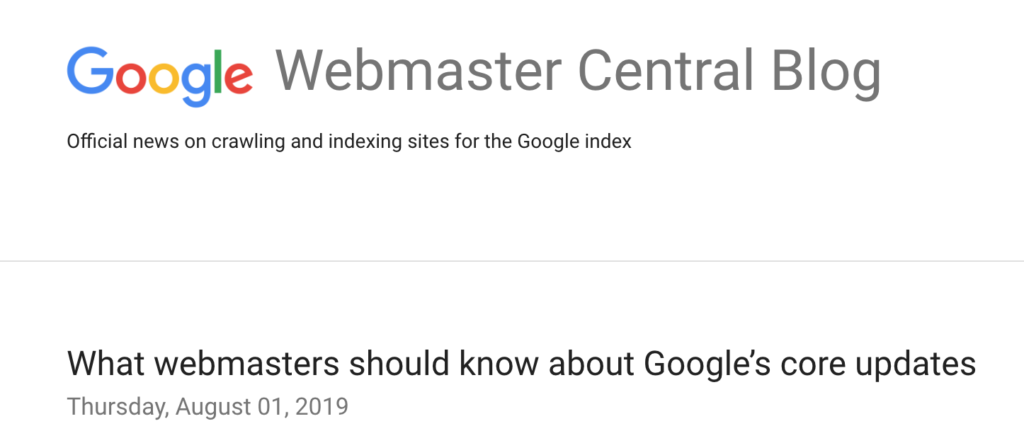For many years I have been a member of James Schramko’s SuperfastBusiness community, and last week one of the members, Ken MacKenzie, posted about Google’s latest advice regarding content.

The post was so good that I asked Ken if he could write a similar post for my website. He agreed, and here it is.
With Google updating its core search ranking algorithm several times a year, it’s important that you know how an update may negatively impact on your website’s ranking in Google search.
Google recently posted advice on its core updates, particularly in relation to Content.
“Broad core updates tend to happen every few months,” said Google. “We’re constantly making updates to our search algorithms, including smaller core updates,” Google added.
Of course, these changes may cause some pages that were previously under-rewarded to do better.
However, the overall advice from Google is that you should focus on your content, particularly if you see a decline in search rankings after a core update.
So, what has changed ? How does Google now assess your content overall ?
In order to be rewarded by their algorithms, you must ensure that you’re offering the best content you can.
Ask yourself the following questions when evaluating your content:
- Does the content provide original information, reporting, research or analysis? In other words, Google is looking for fresh, new content.
- Does the content provide a substantial, complete or comprehensive description of the topic? Pages that are thorough and, answer all parts of the user’s search query are more likely to rank.
- Does the content provide insightful analysis or interesting information that is beyond the obvious? Does your content have more to offer than what your competition is producing?
- If the content draws on other sources, does it avoid simply copying or rewriting those sources and instead provides substantial additional value and originality? Is the majority of the text on the page unique and useful?
- Does the headline and/or page title provide a descriptive, helpful summary of the content? Your headlines need to be appealing and summarize the content.
- Does the headline and/or page title avoid being exaggerating or shocking in nature? Google can tell if you are using clickbait as that typically causes a high bounce rate.
- Is this the sort of page you’d want to bookmark, share with a friend, or recommend? Focus first on your user and make them love your content, your product and your service.
- Would you expect to see this content in or referenced by a printed magazine, encyclopaedia or book? If you are just creating content for the sake of it, visitors will be able to tell.
Remember, the best way to position yourself as an expert is to use data and cite your sources. Therefore, if you’re going to be an expert, make sure you have your name on the page and even link to your bio.
How are you seen compared to your competition?:
You should work on your brand queries, as it will help get you more visibility. Also, write about what you know, and if you don’t know it, go and learn it really well first – before writing about it.
Any false information and Google may catch on, resulting in potential damage to your whole site.
It’s important to show the reader why you are a credible source and why they should pay attention to you instead of one of your competitors.
Always check your content for grammar and spelling errors:
After making grammar and spelling checks make sure your content is easy to read.
Whether it’s your graphics, videos, images or podcasts, ensure the overall experience is great.
Google wants individual pages to fully answer searchers questions.Don’t link out to a lot of other sites to explain your answer, because you aren’t creating the best experience for the user.
Your website needs to load fast:
Don’t ruin the user’s experience by having a lot of ads as they slow down a site. Pages with ads or features that distract from or interrupt the use of the main content will be given a low-quality rating.
The core focus of your site should be to educate and help visitors, not to monetize it.
Your website needs to be mobile and tablet friendly so that it displays well for mobile devices.
Remember, that roughly 60% of all Google searches happen on mobile devices.
Content should have what Google calls a strong E-A-T:
That stands for Expertise, Authoritativeness and Trustworthiness and Google is referring to it as Page Quality. It’s a very important part of their algorithms and, is specifically designed to identify sites with high indicia of expertise, authority and trustworthiness.
Google is moving in the direction of providing hyper-relevant, trustworthy content for its users. Your website and brands need to be thinking this way as well.
Pages that are created with no attempt to help the user, will receive the lowest rating.
Finally, do all that you can to display E.A.T related information for your business. Brag about why your business is the best, and has loads of experience.
Do the same for your authors. Get them published in authoritative places. Display E.A.T. related information in an author bio and link to a full author profile.
If you would like to read the full post from Google:

Thanks Kenny!

The E-A-T update is one of the biggest Google has ever done. It shows their direction towards trustworthy sites and people. It’s time for experts to be recognized and their sites to rise in rankings. And it’s also time for “bad” sites to take their rightful place in the search results, I for one can do without all the fluff.
“The core focus of your site should be to educate and help visitors, not to monetize it” – this right here is gold! All content creators should strive to educate and then the money will come as a result of that work. Can you imagine if we all did our best to create this kind of Internet? How amazing would it be?